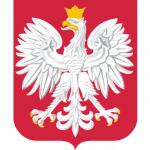dr inż. Jolanta Szulc
e-mail: jolanta.szulc@us.edu.pl
https://orcid.org/0000-0002-8926-3098
https://silesian.academia.edu/JolantaSzulc
https://www.researchgate.net/profile/Jolanta-Szulc
Tematyka badawcza:
- organizacja i reprezentacja wiedzy,
- inteligentne systemy informacyjne,
- normalizacja w informacji i dokumentacji,
- e-learning, digital curation, kultura Internetu, instytucje i ośrodki kultury.
Stopnie i tytułu naukowe:
2012 – praca magisterska inżynierska: Weryfikacja semantyki zapytań do bazy bibliograficznej, Wydział Automatyki, Elektroniki i Informatyki, Politechnika Śląska.
2008 – praca inżynierska: Opracowanie kursu e-learningowego na temat systemów ekspertowych, Wydział Mechaniczny Technologiczny, Politechnika Śląska.
Doktorat
2003 – Kartoteka wzorcowa dla zautomatyzowanego systemu bibliotek kościelnych w Polsce, Wydział Filologiczny, Uniwersytet Śląski.
Magisteria
1997 – Ideał zawierzenia Matce Bożej w duchowości Ruchu Rodzin Nazaretańskich, Wydział Teologii, Katolicki Uniwersytet Lubelski.
1991 – Komputeryzacja Biblioteki Zakładu Bibliotekoznawstwa i Informacji Naukowej, Wydział Filologiczny, Uniwersytet Śląski.
Wybrane publikacje:
- Distance Learning – the Current Status and Directions for Further Research. „International Journal of Research in E-learning” 2020, vol. 6, s. 1-19.
- Collaborative Learning as Learning Based on Cooperation with the Use of New Technologies. W: Universities in the Networked Society. Cultural Diversity and Digital Competences in Learning Communities, hrsg. Eugenia Smyrnova-Trybulska, Piet Kommers, Nataliia Morze, Josef Malach. Springer Nature Switzerland AG, Switzerland 2019, s. 249-259.
- The Features and Functions of an Effective Multimedia Information Retrieval System (MMIR). W: Multimedia and Network Information Systems : Proceedings of the 11th International Conference MISSI 2018, red. Kazimierz Choroś, Marek Kopel, Elżbieta Kukla, Andrzej Siemiński. Springer International Publishing, Cham 2019, s. 120-128.
- Cechy wydawniczo-formalne religijnej literatury użytkowej na przykładzie piekarskich kalwaryjek. „Studia Piekarskie” 2018, nr 4, s. 53-63.
- Sztuczna inteligencja w informacji naukowej. W: Nauka o informacji, red. Wiesław Babik. Wydawnictwo Stowarzyszenia Bibliotekarzy Polskich, Warszawa 2016, s. 387-427.
- Ekslibris z biblioteki ks. Jana Alojzego Nepomucena Ficka. Współczesne funkcje znaku książkowego. W: Studia bibliologiczne. T. 20, Z życia książki. Ochrona i konserwacja zbiorów bibliotecznych oraz konteksty. Prace dedykowane Profesorowi Leonardowi Ogiermanowi, red. Anna Tokarska. Wydawnictwo Uniwersytetu Śląskiego, Katowice 2015, s. 255-267.
- Formal ontologies and their role in the integration of library resources. „Qualitative and Quantitative Methods in Libraries” 2015, vol. 4, s. 505-515.
- Systemy ekspertowe w działalności bibliotecznej i informacyjnej: stan badań, problemy badawcze, przykłady zastosowań. „Zagadnienia Informacji Naukowej. Studia Informacyjne” 2014, nr 1, s. 94-118.
- Time as a constitutive element of information expressed in signs [współaut. Gabriela Besler]. „Kybernetes” 2014, iss. 6, s. 911-923.
- „Bibliotheca Nostra. Śląski Kwartalnik Naukowy: Normalizacja i standardy” 2013, nr 4, red. tematyczny Jolanta Szulc.
Przynależność do organizacji i towarzystw naukowych:
- Polskie Towarzystwo Informacji Naukowej,
- International Society for Knowledge Organization,
- Stowarzyszenie E-learningu Akademickiego,
- Federacji Bibliotek Kościelnych „Fides” (członek honorowy),
- KT 242 ds. Informacji i Dokumentacji Polskiego Komitetu Normalizacyjnego, przewodniczący (od 2012 r.).
Jolanta Szulc, PhD (Eng)
Assistant Professor in the Institute of Culture Studies, the University of Silesia in Katowice
ORCID 0000-0002-8926-3098
https://silesian.academia.edu/JolantaSzulc
https://www.researchgate.net/profile/Jolanta-Szulc
Research interests:
- knowledge organization & representation,
- intelligent information systems,
- normalisation in information and documentation,
- e-learning, digital curation, Internet culture, culture institutions & centres.
Selected publications:
- Distance Learning – the Current Status and Directions for Further Research. „International Journal of Research in E-learning” 2020, vol. 6, pp. 1-19.
- Collaborative Learning as Learning Based on Cooperation with the Use of New Technologies. W: Universities in the Networked Society. Cultural Diversity and Digital Competences in Learning Communities, hrsg. Eugenia Smyrnova-Trybulska, Piet Kommers, Nataliia Morze, Josef Malach. Springer Nature Switzerland AG, Switzerland 2019, pp. 249-259.
- The Features and Functions of an Effective Multimedia Information Retrieval System (MMIR). W: Multimedia and Network Information Systems : Proceedings of the 11th International Conference MISSI 2018, eds. Kazimierz Choroś, Marek Kopel, Elżbieta Kukla, Andrzej Siemiński. Springer International Publishing, Cham 2019, pp. 120-128.
- Document Management in the Polish Central Catalogues. In: Theorie, Semantik und Organisation von Wissen. Ergon Verlag, Würzburg 2017, pp. 314-322.
- Building the Ontology Dictionary using the Inference Engine RACER. In: Categories, Contexts and Relations in Knowledge Organization : proceedings of the Twelfth International ISKO Conference 6-9 August 2012 Mysore, India. Ergon Verlag, Wurzburg 2012, pp. 369-370.






